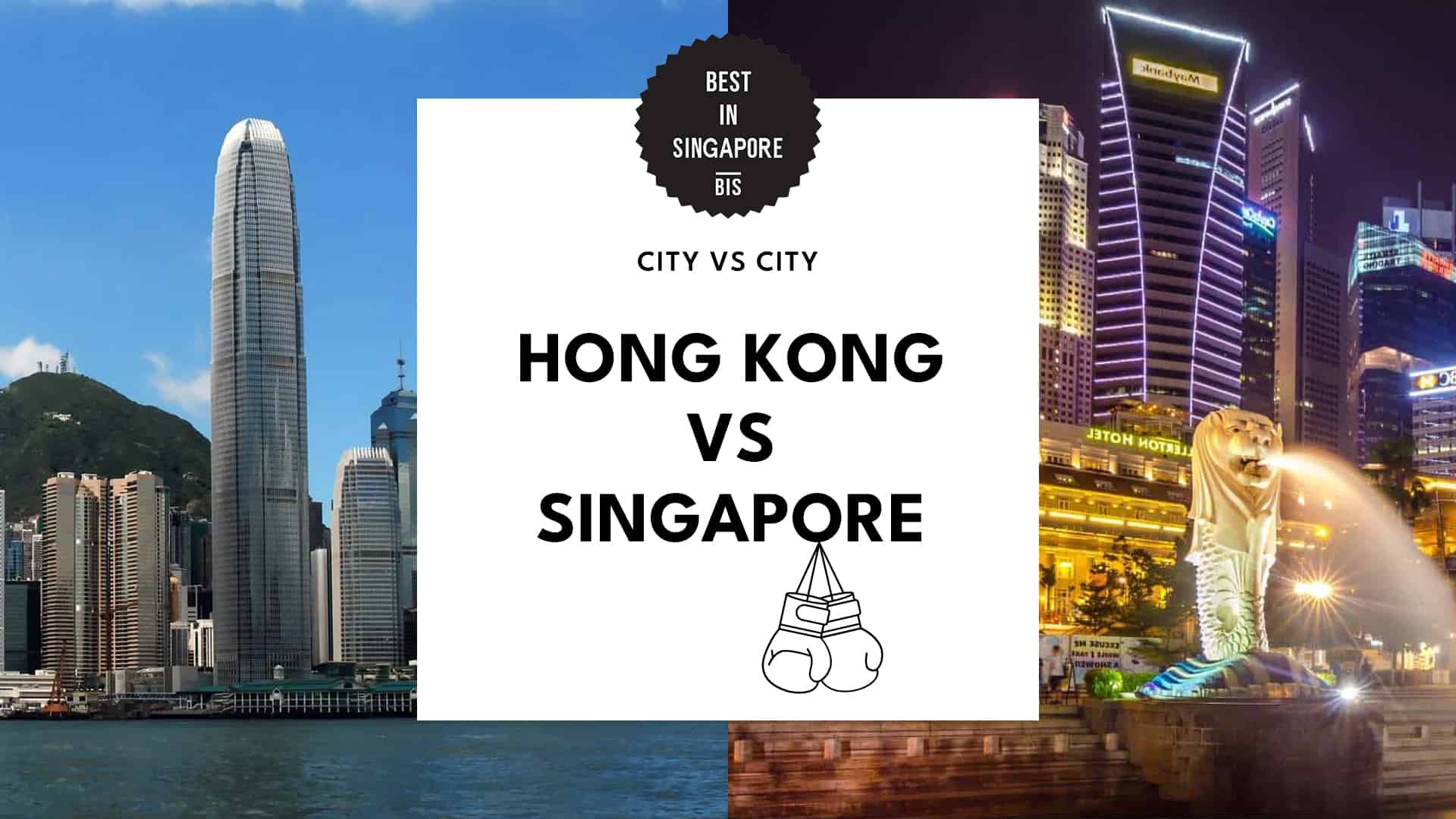Which is better to visit: Hong Kong or Singapore?
Caught between Hong Kong’s allure and Singapore’s charm for your next Asian destination? It’s no wonder, given their unique cultural offerings, culinary delights, and captivating landmarks!
If you’re escaping the cold weather, Singapore offers a tropical yet modern destination with many airconditioned tourist destinations.
On the other hand, Hongkong has hot and humid summers, pleasant cold months, and unpredictable rainy weather to choose from.
Beyond weather, there are other significant factors to compare and contrast Singapore and Hongkong. This guide aims to explore the highlights of each destination and find the perfect fit for your next travel plans.
How Many Days to Visit
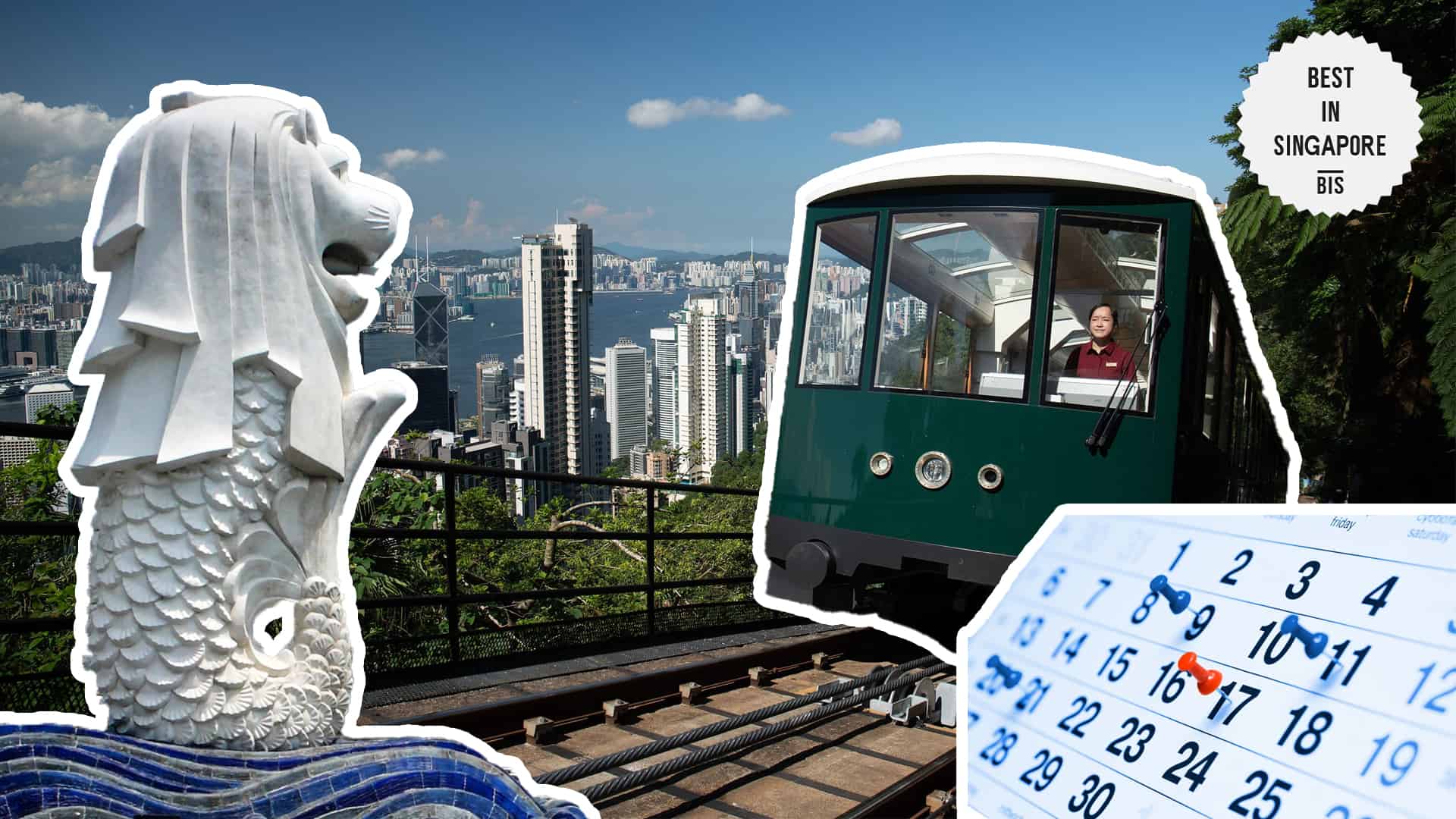
A comparative study by the University of Central Florida found short average lengths of stay for all visitors, with 3.4 days in Hong Kong and 3.5 days in Singapore.
While both destinations attract a mix of tourists, Hong Kong emphasises its dynamic urban energy, while Singapore highlights its modern, organised, and multicultural environment.
The number of days it takes for a tourist to visit all of Hong Kong (HK) or Singapore (SG) can vary based on individual preferences, travel pace, and specific interests.
A thorough visit to Hong Kong typically takes around 3 to 7 days for its key attractions including exploring the neighbourhoods, visiting iconic landmarks, experiencing local markets, enjoying the diverse culinary scene, and taking excursions to outlying islands.
Additional time may be required for specific interests such as hiking, cultural events, or theme parks.
Meanwhile, a comprehensive visit to Singapore can be achieved in 2 to 7 days. Singapore’s efficient public transport allows visitors to cover various attractions quickly.
Attractions
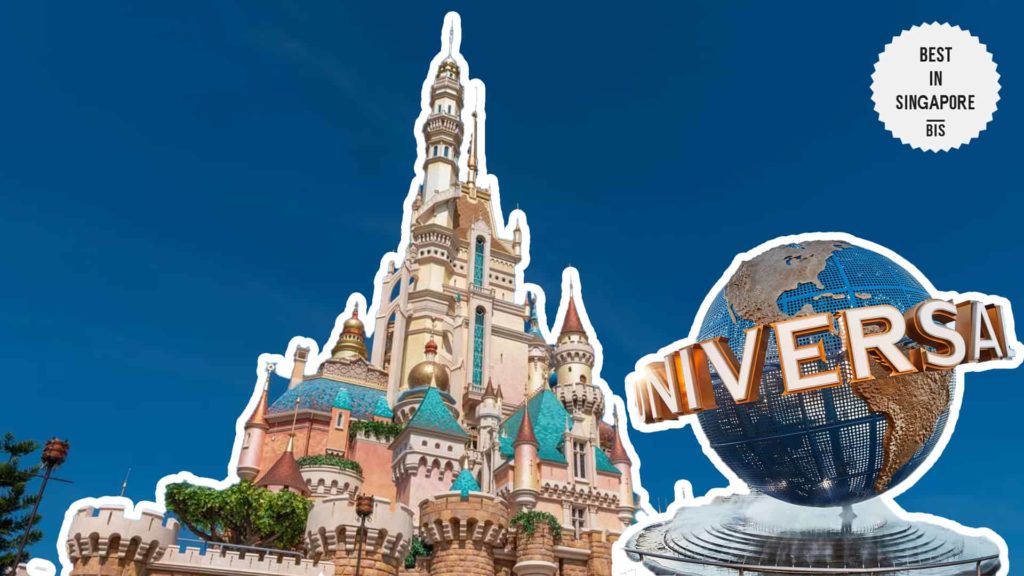
Both Hong Kong and Singapore boast a wealth of tourist attractions, making it challenging to definitively say which can entice more visitors.
However, Hong Kong and Singapore have roughly the same number of amusement parks. Hong Kong has Hong Kong Disneyland, Hong Kong Wetland Park, Ma Wan Park, Ocean Park Hong Kong, and Snoopy’s World.
Singapore has Resorts World (with Marine Life Park and Universal Studios), Snow City, Mandai Wildlife Reserve, Gardens By the Bay, and Haw Par Villa.
From the panoramic views at The Peak to the vibrant Ladies’ Market and the scenic Big Buddha cable car ride, Hong Kong is a city that never sleeps.
But Singapore has its cultural gems like Marina Bay Sands, the lush Gardens by the Bay, and unique neighbourhoods such as Little India.
Generally, Hong Kong pulses with dynamic energy but carries a hint of grit, while Singapore boasts a sanitised charm, offering spacious and pleasant surroundings.
However, if you crave the lively markets and temples found practically everywhere in Hong Kong, Singapore may feel a bit too curated for adventurous tourists.
Prices and Travel Expenses
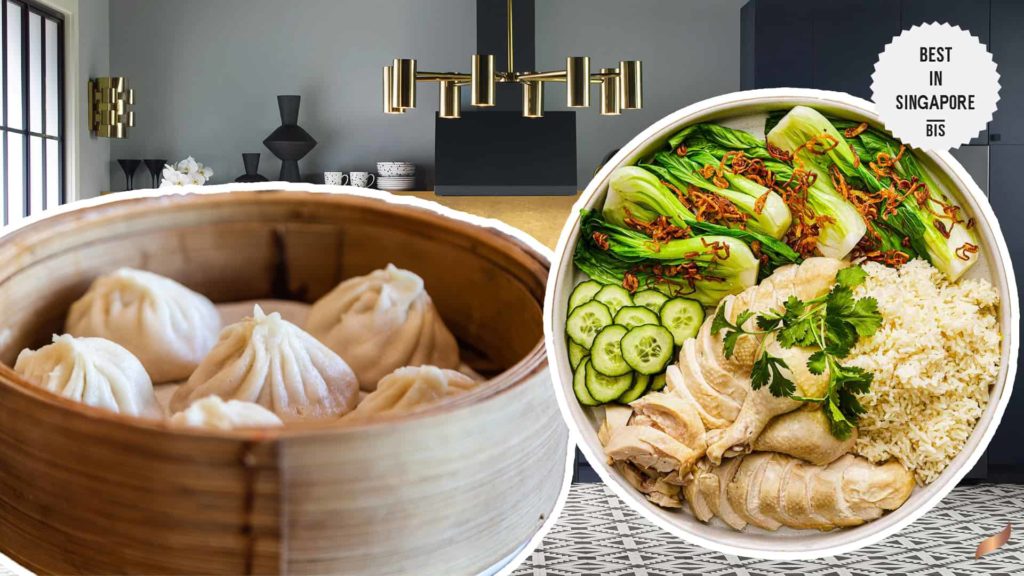
In general, prices in Hong Kong are 10%–20% lower than in Singapore due to easier access to Chinese goods, resulting in a lower cost of living.
However, for the second year in a row, Hong Kong tops the list as the most expensive location in Asia for business travellers, averaging a daily cost of $520 (compared to $515 in SG), according to ECA International’s latest Daily Rates research.
The ranking considers expenses like four-star hotel rooms, meals, laundry, drinks, taxi rides, and incidental costs, helping organisations plan for the expenses of business trips and short-term assignments.
Neither Singapore nor Hong Kong is a budget destination, but Singapore is relatively more affordable, especially for food.
Meals at hawker centres can be under S$10, and even restaurant options in Chinatown and Little India often range from S$20–30 per person.
However, accommodation costs are generally high in both cities. Prices for HK hotels vary, but budget options might start around HK$83 per night. Budget hotels in Singapore might start around S$80 per night.
Overall, while costs can fluctuate, Singapore is slightly more affordable than Hong Kong.
Weather

Hong Kong and Singapore exhibit distinct climates. A lot will depend on your itinerary, especially if it involves a lot of outdoor hiking, travelling, and weather-dependent activities.
Both Singapore and Hong Kong, situated in tropical regions, experience hot, humid weather and monsoon seasons. Hong Kong, located further north, has a cooler, humid winter and hot, rainy spring and summer.
Hong Kong generally experiences a cooler water temperature of 23.90 °C compared to Singapore’s warmer 27.80 °C.
In terms of precipitation, Hong Kong records 2,270 mm, while Singapore receives 2,132 mm in a year. Hong Kong has 106.8 rainy days, whereas Singapore has 136.8 rainy days annually.
The hours of sunshine per year also differ, with Hong Kong having 1,898 hours and Singapore enjoying 2,117 hours of sunshine.
Despite their proximity, Hong Kong and Singapore have distinct climates due to their differing latitudinal locations in Asia.
Singapore does not have distinct seasons like winter, spring, summer, or autumn. Instead, it has a relatively consistent climate with variations influenced by the monsoon seasons.
Safety
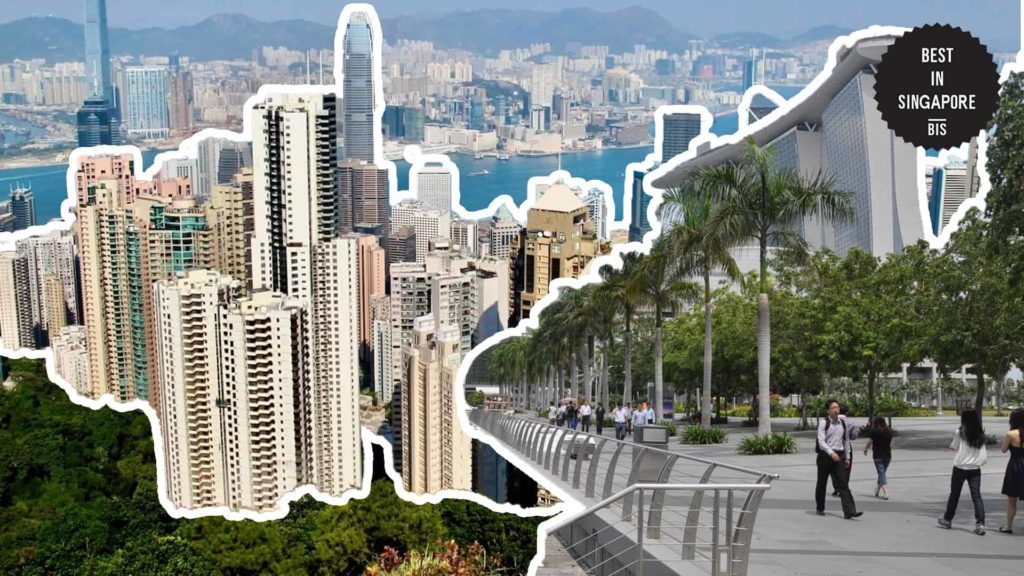
According to recent studies from January 2023, Hong Kong has a lower crime rate than Singapore.
Generally, though, crime rates in Hong Kong and Singapore are exceptionally low, with both registering similar figures. In 2020, Singapore’s crime rate was 0.17, while Hong Kong’s was 0.29, according to Macrotrends.
Strict law enforcement, including stringent gun control measures, contributes to low crime rates in both Hong Kong and Singapore.
On the other hand, Singapore, known for having one of the safest environments, maintains strict law enforcement, imposing stiff penalties for even petty crimes to deter repeat offences.
The cleanliness and orderliness of the Lion City are the results of the full enforcement of laws, preventing attempts to settle personal injury cases through monetary compensation or coercion.
This means visitors can feel relatively safe in either destination without feeling afraid for their lives, reputation, or possessions.
Transportation
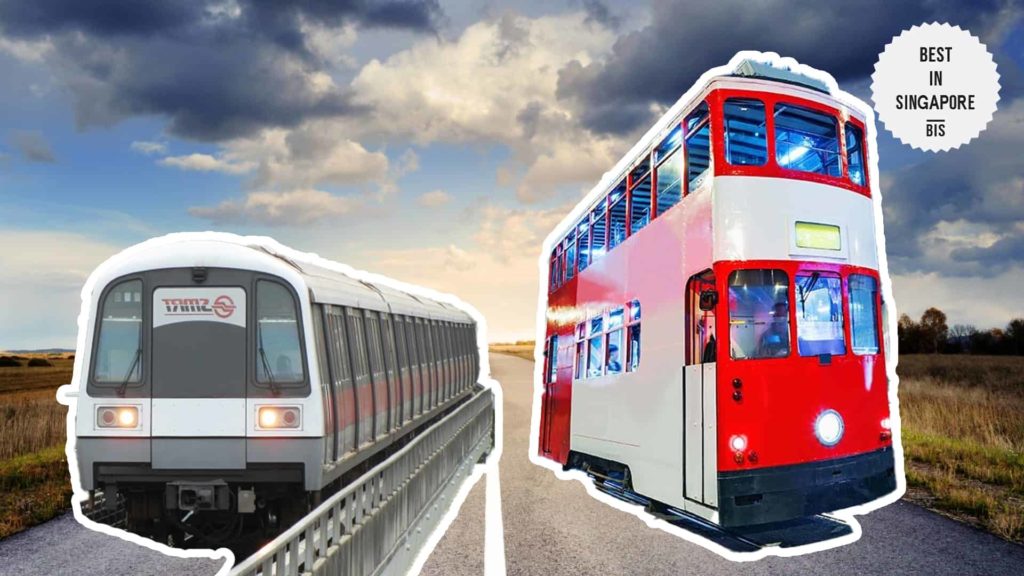
While Hong Kong’s transport network is praised for affordability, high station density, and accessibility, it lacks 24/7 availability and dedicated mobile applications for seamless mode transitions.
In contrast, Singapore has SG BusLeh which offers real-time bus arrival information, routes, and schedules.
Both cities boast well-developed and affordable public transport systems, with the subway being the fastest option.
Hong Kong currently tops the global ranking for the best public transport services, considering traffic volume, network density, and infrastructure quality, according to a study by consulting firm Oliver Wyman.
The Octopus card costs HK$150 with an HK$100 initial value and an HK$50 refundable deposit. Meanwhile, the EZ-Link card in Singapore is S$12, including a non-refundable S$5 card cost and S$7 initial value.
Like many major cities, both Hong Kong and Singapore experience traffic congestion during peak hours, especially in central business districts. Morning and evening rush hours can lead to slow-moving traffic.
Hong Kong has a higher density of private vehicles, and driving is more common among locals.
In contrast, Singapore has implemented measures like high vehicle taxes and Certificate of Entitlement (COE) policies, making car ownership more restrictive and promoting the use of public transport.
Moreover, MyTransport Singapore, developed by the Land Transport Authority (LTA), provides comprehensive details on public transportation, including real-time updates, routes, and fares for buses and trains.
Taxis are costly in both cities but consider using Grab in Singapore and Uber in Hong Kong as taxi alternatives.
Food to Try

Gourmands will blow a gasket when it comes to great dining options in Singapore.
In 2023, Singapore has a total of 55 Michelin-starred restaurants, including 46 with one star, 6 with two stars, and 3 with three stars.
Meanwhile, Hong Kong has 77 Michelin-starred restaurants as of 2023.
It also has 68 eateries on the Bib Gourmand list, recognised for providing affordable three-course meals.
In Singapore, diverse culinary options abound, offering Cantonese, Indian, Malaysian, Chinese, and Western cuisines, catering to all budgets. In Hong Kong, Cantonese food is prominent, with fewer options for other cuisines.
If you’re a food enthusiast, Singapore is a paradise with its array of modern eateries, Michelin-star restaurants, Peranakan food, and iconic hawker centres. For budget-friendly yet delicious options, hawker centres offer a diverse range of cuisines.
On the other hand, Hong Kong boasts over 15,000 restaurants, including Michelin-star establishments. Notably, it hosts the world’s most affordable Michelin-star meal at Tim Ho Wan, a renowned dim sum emporium.
Ease of Communication

English is widely spoken in Singapore, with approximately 37% of the population using it as their primary language.
Chinese and English are the official languages in Hong Kong, with 46.07% of total English speakers.
Overall, English-speaking visitors should find it easy to communicate in both Hong Kong and Singapore, with English widely understood in various contexts.
Singapore has four official languages: Mandarin, English, Tamil, and Malay.
It serves as the country’s de facto language, used by the government and businesses, and as the official medium of instruction in education.
Don’t worry about getting lost in translation in either Hong Kong or Singapore, given the following facts and figures:
Singapore leads in English language proficiency among 25 Asian nations, according to the ninth edition of Education First’s English Proficiency Index (EPI).
With an EPI score of 66.82, Singapore also stands fifth globally among non-native English-speaking countries.
Hong Kong holds the fourth position with a moderate proficiency EPI of 55.63.
Which offers a more Instagram-worthy visit: Hong Kong or Singapore?

Singapore’s skyline is organised, clean, and calm. Each building harmonises with the next as if specifically arranged to be parts of a whole.
On the flip side, Hong Kong’s skyline is like a mishmash of skyscrapers cutting into the horizon—chaotic yet undeniably thrilling with a pulsating energy.
The bottom line? Both cities have snap-worthy views, vignettes, cultural showcases, and even food!
Those who do everything for the ‘gram may be asking, “Which is more Instagram-worthy between HK and SG?”
Singapore’s architects have incorporated stunning features like Supertrees and a lotus-shaped museum, creating a unique urban landscape.
In contrast, Hong Kong secured the fifth position on the Most Instagrammed Foodie Hotspots list, with 622k Instagram posts featuring the hashtag #HongKongfoodie, according to a survey by Spin Genie.
Wrap-Up: Hong Kong vs Singapore—which is better to visit?
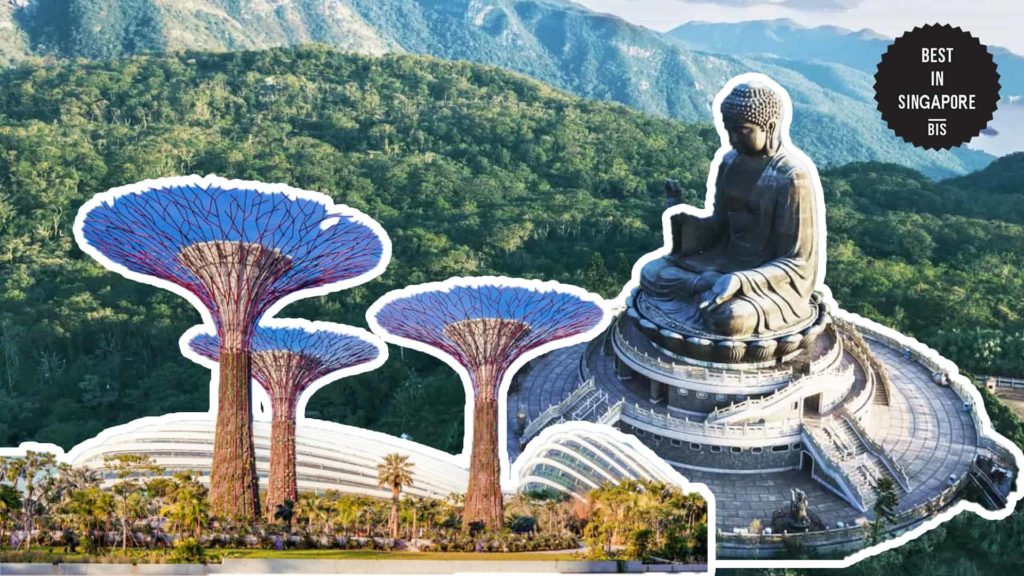
Choosing between visiting Hong Kong and Singapore boils down to your preferences and interests. Both cities offer unique experiences and attractions:
Hong Kong:
- A dynamic city with a vibrant atmosphere
- Stunning skyline, especially at Victoria Harbour
- Rich cultural diversity and traditional markets
- Excellent hiking trails and natural scenery
- Famous for Cantonese cuisine and international dining options
Singapore:
- Clean, modern, and orderly city-state
- Iconic landmarks like Marina Bay Sands and Gardens by the Bay
- Diverse cultural neighbourhoods, such as Chinatown and Little India
- World-class shopping and dining experiences
- Strict enforcement of laws and high safety standards
Ultimately, if you prefer a more dynamic and bustling environment with a diverse range of cultural experiences, Hong Kong might be the choice.
On the other hand, if you appreciate a well-organised, clean city with modern amenities and a variety of culinary delights, Singapore could be the ideal destination.

